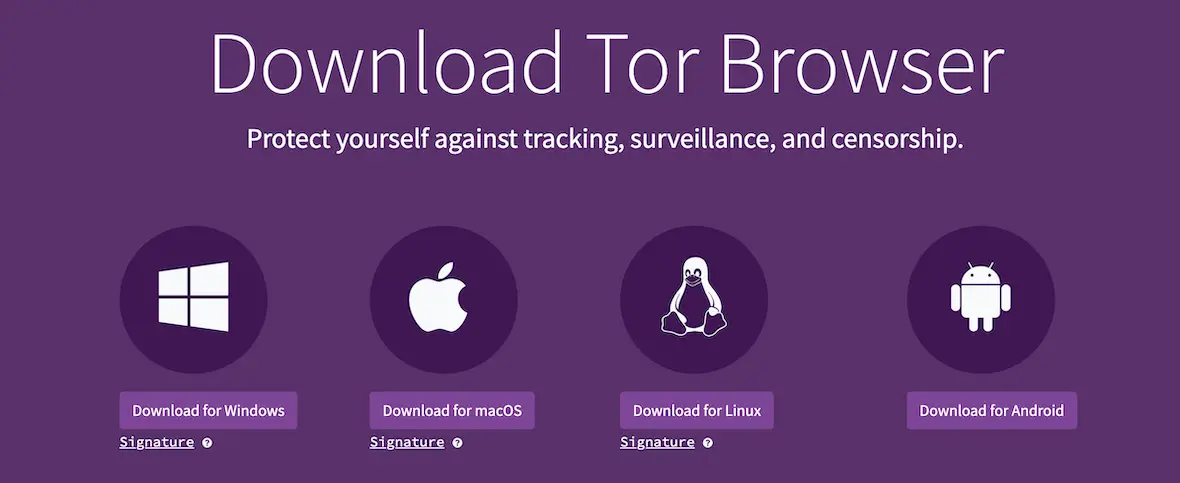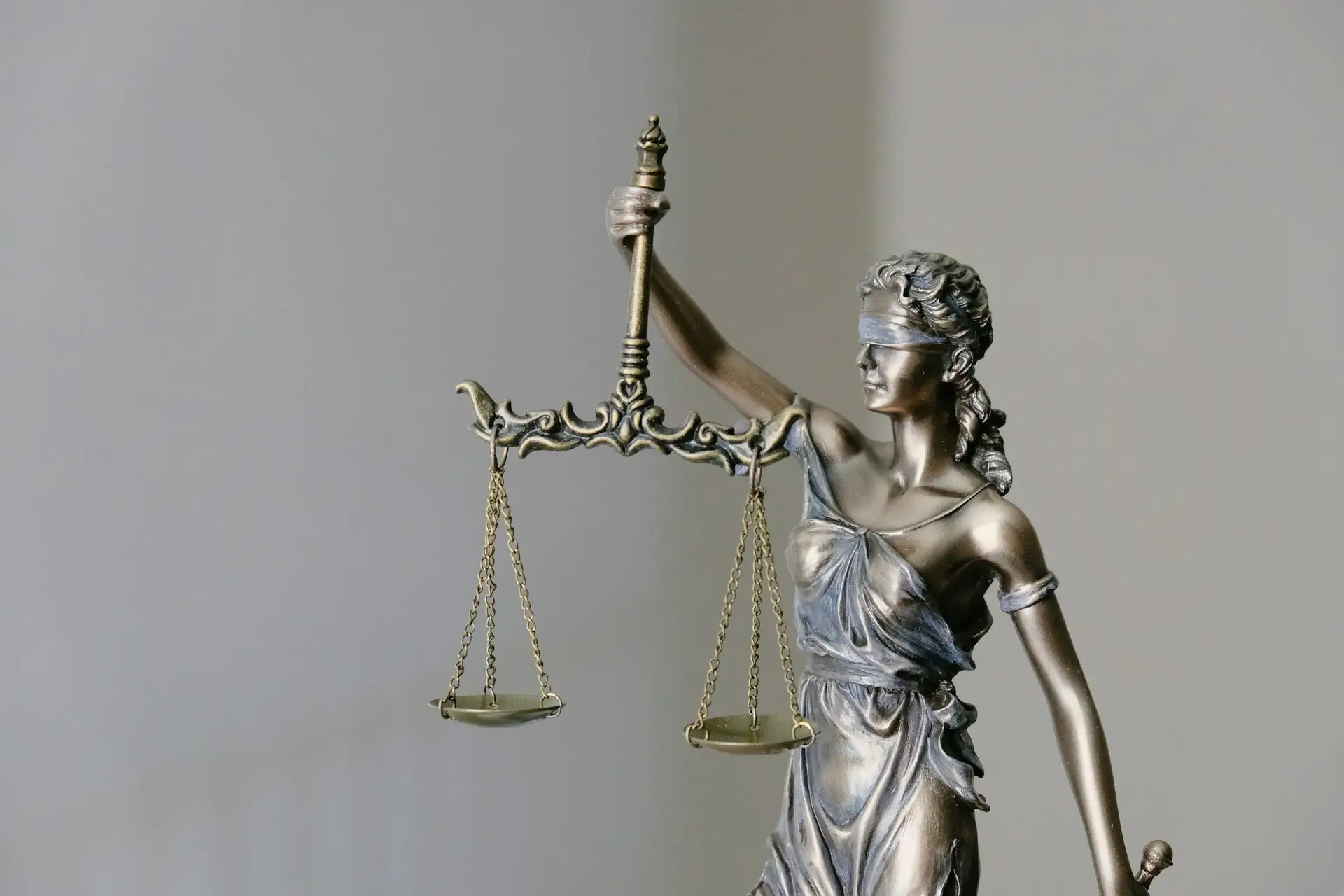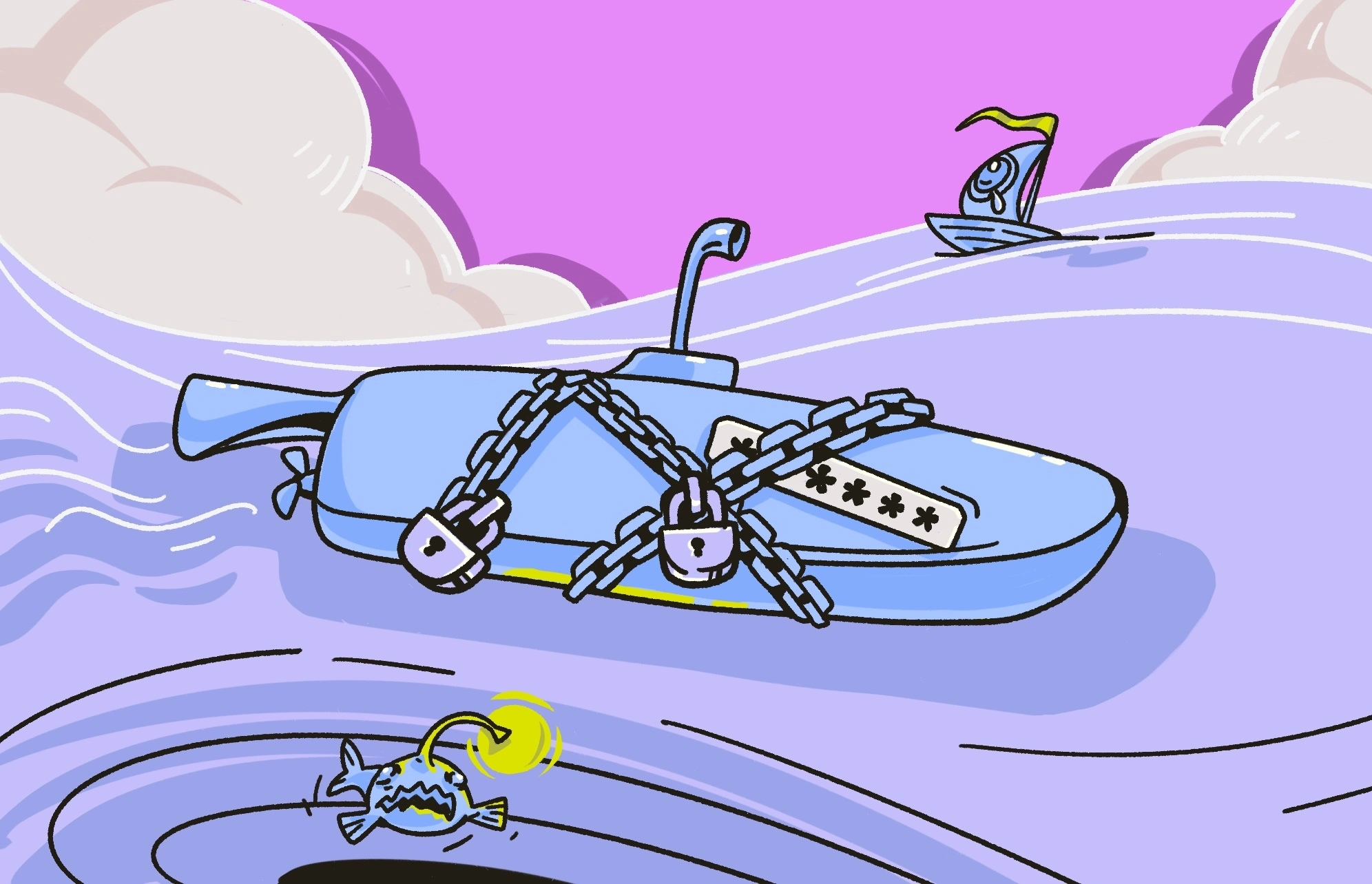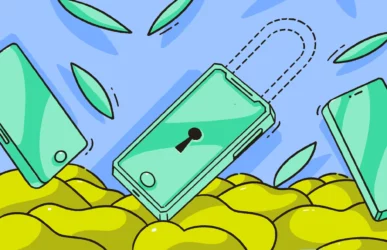Even if you aren’t an internet expert, you’ve probably at least heard of the terms “deep web” and “dark web.” Many people think they are the same thing, while others wonder what they are for, how safe they are, and if they are illegal to access.
Let’s take a deep dive into the deep web and the dark web to find out what they are.
What is the deep web?
What most of us consider to be the regular internet is really only the “surface web.” The deep web lies underneath. According to experts, the deep web takes up more than 90% of the internet, but none of it is indexed on search engines. It’s out of reach of the search engines and only accessible to those who know the exact way to get there.
The deep web — which is safe and legal to use — consists of content which its owners do not want indexed or made generally available through search engines. This includes but is not limited to paywalled content (such as academic research papers), private databases, and company intranets.
There’s nothing particularly dark or nefarious about the deep web. It’s simply private data that its owners wish to remain private and only accessible to people entitled to access it. This means that virtually all pages on the deep web are password-protected. That said, you should exercise the same level of caution on the deep web as you would on the regular internet.
Get protection from real cybercrime experts
What is the dark web?
The dark web (or darknet, as it’s sometimes called) is the dark, dangerous underbelly of the internet. Comprising less than 0.01% of the entire internet, it consists of networks that hide their pages from regular search engines, such as Google, for reasons that will soon become obvious.
On the dark web, individuals engage in illegal activities such as selling drugs, pornography, weapons, and stolen data (such as credit card numbers and passports). One can even find hitmen advertising themselves for hire.
The dark web uses a system of scrambled URLs, which makes guessing the location of sites difficult to figure out. Due to their illegal nature, pages constantly go down, while new ones are always popping up. This means that bookmarking particular pages is often a waste of time, and any dark web search engines are usually quickly out of date.
It is legal to access the dark web, although the vast majority of activities that occur on it are illegal. If you insist on visiting the dark web, you will need a secure encrypted browser, which is specially configured to access the dark web. The best option is Tor (The Onion Router). A VPN is also highly recommended as an extra layer of protection.

It is worth noting that the dark web is not all bad. It is also used for legitimate purposes, such as protecting freedom of speech in totalitarian countries and shielding the identities of corporate whistleblowers.
In general, the dark web is a dangerous part of the internet, so it is generally recommended that you avoid it altogether. Many of the pages contain malware and could also be law enforcement traps. Do not click download links under any circumstances. They’re likely to have viruses.
What’s the difference between the deep web and the dark web?
In the issue of the deep web vs. the dark web, many people assume that they are the same thing with 2 different names. As we’ve seen, this isn’t true. Here are a few of the key differences.
The deep web is mainly safe, while the dark web is not
The deep web is mostly safe and consists of databases and intranets that aren’t meant to be made publicly available. The dark web, on the other hand, is the complete opposite — it can be highly dangerous and should be avoided as much as possible.
You need a special encrypted browser to visit the dark web
As we have outlined already here, accessing the dark web requires an encrypted browser like Tor, which will protect your location and therefore your identity. Accessing the deep web can be done with a standard browser.
Pages on the deep web are mostly password-protected
Since the deep web consists mainly of databases and intranets, these pages are password-protected and require specific login credentials. The dark web, by contrast, is less likely to be password-protected. Some pages may be, but on the whole, you can get through the dark web without much in the way of login names and passwords.
Common misconceptions about dark web and deep web
There are some common myths and misconceptions about the dark web and the deep web. Let’s take a look at them.
The deep web is dangerous and illegal
The deep web isn’t dangerous or illegal. It is a normal part of the internet, albeit a part of that is not indexed by search engines and mostly requires login details to access.

While it is true that there is some risk of malware and malicious links, it’s similar to the level of risk associated with browsing the regular internet. In general, the deep web is nothing to be overly worried about.
If you are an academic or someone with access to a database or company intranet, then going into the deep web is a legal and problem-free experience.
The dark web is vast and only for criminals
First off, the dark web is not vast at all. In fact, it represents only about 0.01% of the internet. And while the majority of the dark web is used by criminals hawking illegal wares and dangerous people attempting to spread malware, there is also a smaller, more benign, side to it.
This side is for people living under oppressive regimes, whistleblowers, and those trying to protect themselves when leaking documents. The dark web is necessary for journalists who report on totalitarian regimes, political activists, and other people in danger due to the knowledge they want to reveal to the world.

Why do people use the dark web?
If the dark web is so dangerous, why go anywhere near it? For cybercriminals, the answer is obvious. The dark web is unindexed and not straightforward to access, meaning a user can’t “accidentally” stumble on the content contained there. And the last thing criminals promoting illegal services want is to draw unwelcome or unnecessary attention.
Since the dark web is not indexed by mainstream search engines and you need a specialized internet browser to access it, criminals have naturally gravitated to it. Having said that, international law enforcement agencies such as the FBI do maintain an active presence on the deep web, posing as criminals or as potential buyers for drugs, weapons, child pornography, or hitmen.
Risks associated with the deep web and the dark web
Since the deep web is a mostly benign and harmless place, the only “risk” is that someone with stolen login credentials can access databases, download personal data, and potentially use it or sell it. Therefore, be very cautious about what personal information you put on these pages if you are authorized to use them.
But the dark web? There are lots of risks involved, but here are the 3 main ones.
Malware and viruses
There’s a high probability that download links on the dark web will contain malware and viruses designed to get onto your computer, control it, and steal information from it. A good antivirus software will help mitigate this risk to a certain degree. However, the best course of action is to not expose yourself to these dangers in the first place.
Crime
Criminals selling illegal goods or stolen identities are always on the lookout for new victims. So, anytime you reveal personally identifiable information to someone on the dark web, there is a substantial risk of that data being used by someone else.
Besides that, the fact that the dark web is full of drug dealers, arms dealers, and traffickers means that you never know if you are speaking to a criminal — or an undercover law enforcement officer. Even if your presence on the dark web is innocent, you could accidentally find yourself caught up in a police investigation.
Exposure to harmful content
The dark web is full of awful, potentially traumatizing content that would never appear on the regular internet. Examples include videos that feature murder, child pornography, torture, rape, and terrorism incidents.
By browsing the dark web, you run a real risk of stumbling onto content like this. Content that will most likely upset you, anger you, and traumatize you. It’s just not worth the risk.
How to safely access the deep web and the dark web
Since the deep web is considered to be mostly safe, there aren’t any specific actions needed to “safely access it.” It wouldn’t hurt to use a VPN and exercise some caution when clicking links. But, again, that is also true of the regular internet.
The dark web, on the other hand, is an entirely different matter. You must take major precautions in this instance, as the risks start as soon as you connect to the dark web.
Here are the 3 methods you should be adopting to increase your chances of staying safe.
Use Tor Browser
The Tor Project, which maintains the Tor Browser, says that, on average, 2 million people use Tor every month. It’s easy to see why. It provides layers of security that other browsers, such as Chrome and Firefox, simply don’t offer.
Use a virtual private network
Many people also choose to use a virtual private network (VPN), as well as the Tor browser, for extra security. The use of a VPN is more or less how the Tor browser works. It redirects your web browsing through other anonymous servers to mask your location, thus hiding your IP address.
However, you need to remember that, since the Tor browser sends you through so many cutouts to protect you, it suffers from slowdown. Adding a VPN on top of that is going to make your Tor browsing slower still.
Don’t reveal personal details to anyone on the dark web
Staying safe on the dark web comes down to using an encrypted browser and possibly a VPN. Both will conceal your location. But these measures are useless if you enter a dark web chatroom or forum and tell people your name, location, and other personally identifiable details.
Considering that the dark web is populated by people who steal identities, revealing your personal data is foolhardy, to say the least. Do not give any real names or locations. If necessary, make the information up.
Frequently asked questions about the deep web and dark web
There is no single creator of the dark web. Instead, 2 innocent tech developments came together to unwittingly form it. One was the invention of Freenet in 2000, which offered online anonymity. Around the same time, the US Naval Research Laboratory invented a highly encrypted internet browser called Tor (The Onion Router.)
The deep web is much larger than the dark web. The deep web represents 90% of the internet, whereas the dark web represents less than 0.01%.
As noted above, it is estimated that the deep web takes up more than 90% of the entire internet. This lies beneath the surface web that most of us consider the regular internet.
No, it is not illegal to access the dark web, and the use of the Tor browser is also not illegal. However, what you do on the dark web might very well be illegal.
The police can indeed track you on the dark web, and they do so on a regular basis. It is more challenging to track someone on the dark web compared to the regular internet. But, nevertheless, it can be done.
It is extremely difficult to accidentally stumble onto the dark web. You need a specialized browser, such as Tor, to access it. Plus, its pages are not indexed by Google.
The Dark Web has a well-deserved reputation for being dangerous and full of nasty people. The Deep Web, which is mostly harmless, suffers by association, since people assume that one is the same as the other.
Take caution if you feel the need to visit the Dark Web – look upon it as walking down a dark alleyway at night. You never know who is lurking. As for the Deep Web? Well, make sure you have your valid login details and you’ll be fine.







